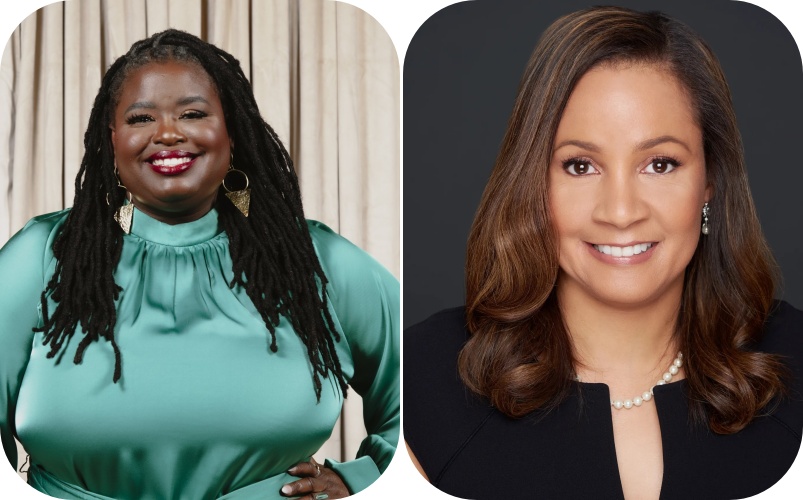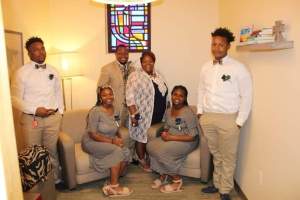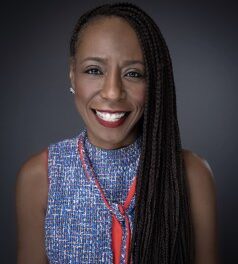
By Megan Sayles
AFRO Business Writer
msayles@afro.com
A Fulton County judge has overturned Georgia’s six-week abortion ban. Superior Court Judge Robert McBurney ruled on Sept. 30 that the Living Infants Fairness and Equality (LIFE) Act was unconstitutional, permitting abortions up to 22 weeks of pregnancy.
McBurney declared that the ban violated citizens’ right to privacy under the state’s constitution.
“For these women, the liberty of privacy means that they alone should choose whether they serve as human incubators for the five months leading up to viability,” said McBurney in the opinion. “It is not for a legislator, a judge or a commander from ‘The Handmaid’s Tale,’ to tell these women what to do with their bodies during this period when the fetus cannot survive outside the womb anymore than society could—or should— force them to serve as a human tissue bank or to give up a kidney for the benefit of another.”
Since the decision, Georgia Attorney General Chris Carr has filed an appeal to the Georgia Supreme Court to reinstate the six-week ban. This is the second time McBurney has struck down the abortion law. The first took place in November 2022 but the state’s supreme court reversed his ruling.
The LIFE Act has garnered considerable scrutiny in recent weeks after a September investigative report from ProPublica found that a 28-year-old Georgia woman died of septic shock after waiting 20 hours for doctors to administer abortion care.
Medical assistant Amber Thurman traveled to North Carolina to terminate her pregnancy due to her state’s ban. She missed her appointment, but the clinic gave her an abortion pill to take. Once home, Thurman experienced a complication—her body hadn’t purged all of the fetal tissue from her body.
A standard dilation and curettage (D&C) could have saved her life, but Georgia’s law made performing the procedure illegal with minimal exceptions. The ProPublica report revealed that a state maternal mortality review committee deemed the death preventable.
Thurman’s family spoke out on the tragedy for the first time during the Unite for America live stream event with Oprah Winfrey and presidential nominee Kamala Harris on Sept. 19.
“Amber was not a statistic,” said her mother, Shanette Williams during the stream. “She was loved by a family, a strong family, and we would have done whatever to get our baby the help that she needed.”
She continued, “You’re looking at a mother who is broken.”
Thurman left behind a 6-year-old son. She had recently landed a new apartment and was thinking about attending nursing school when she discovered that she was pregnant.
During the live stream, her family denounced the Georgia doctors who failed to care for her as well as the government officials responsible for the ban.
“We trusted them to take care of her, and they just let her die because of some stupid abortion ban,” said her sister, CJ Williams during the stream. “They treated her like she was just another number. They didn’t care for her as if she was their daughter or their granddaughter. She’s not here, and she’ll never come back.”
Harris said Thurman’s story is one that is not an isolated case since the reversal of Roe v. Wade in June 2022. The U.S. Supreme Court’s Dobbs v. Jackson decision gave states the power to regulate abortion. Today, 13 states have made it illegal, according to the Center for Reproductive Rights.
“The former president chose three members of the United States Supreme Court with the intention that they would undo the protections of Roe v. Wade,” said Harris during the stream. “They did as he intended, and in state after state, these abortion bans have been passed that criminalize healthcare providers.”
Most states that have banned abortion, including Georgia, allow exceptions when the mother’s life is at mortal risk. But, some, including Harris, believe these exemptions are ambiguous and can cause medical professionals to hesitate in performing life-saving procedures due to legal ramifications.
Although the Dobbs decision enabled states, like Georgia, to reverse and eliminate abortion protections, many contend access was limited well before the ruling.

“Even before the actual Dobbs case that ultimately took out Roe V. Wade was decided upon, it could have been argued that Roe V. Wade did not exist in this country before then,” said Monica Simpson, executive director of SisterSong Women of Color Reproductive Justice Collective. “There were states, like Mississippi, that only had one abortion clinic. We know that access is not always granted even when a federal right has been put into place.”
Simpson’s southern-based nonprofit led the lawsuit against the state of Georgia, which resulted in the recent reversal of the LIFE Act. The organization fights for reproductive justice by boosting the voices of indigenous women and women of color—groups who are heavily impacted by anti-abortion laws.
According to the Centers for Disease Control and Prevention (CDC), Black women accounted for the highest percentage, 41.5 percent, of all abortions in 2021.
They also face the worst maternal health outcomes. The CDC reported that the maternal mortality rate for Black women was 69.9 deaths per 100,000 live births, 2.6 times more than White women.
“If you think about the picture of maternal health in this country, it’s a pretty bleak one in what is considered to be one of the most industrialized countries in the world,” said Simpson.
Apart from racism, a lack of comprehensive sex education in public school systems, reduced access to the health care system and lower maternity coverage have contributed to the dire state of Black maternal health, according to Simpson.
She said the now lawful abortion bans and restrictions across the country will only exacerbate adverse maternal health outcomes for Black women.
“Access is constantly being restricted across this country and, particularly, in the South. That means the region where there’s the most limited access to abortion is also where Black women are living the most,” said Simpson. “We’re more likely to live in a state where there is an abortion ban, and, now, we’re basically being forced to potentially hold a pregnancy to term that could be detrimental to our lives.”

Regina Davis Moss, president and CEO of In Our Own Voice: National Black Women’s Reproductive Justice Agenda, said barriers to accessing abortions can also impact a person’s financial situation.
“Black women are having to travel over long distances for multiple days sometimes. There’s transportation costs, hotels, meals, child care and missed time off from work,” said Moss. “When you think about some of the reasons that people decide not to continue a pregnancy, largely it’s because of the economics, so it further becomes insurmountable.”
Six weeks has become the threshold for several abortion bans across the country. Moss said this cutoff often takes place before women discover they are pregnant.
“This notion that that’s plenty of time is a myth,” said Moss. “Plenty of time for whom? Not usually the average woman.”
She also explained that some opponents of abortion believe the decision to terminate a pregnancy to be a flippant one. They think it’s taken lightly and neglect to consider the serious health and economic implications an unplanned pregnancy can have, according to Moss. She said this is a misconception.
“We are forgetting that these are people, and these are real lives,” said Moss. “These decisions are very difficult and personal.”
The post Georgia judge overturns 6-week abortion ban appeared first on AFRO American Newspapers.











